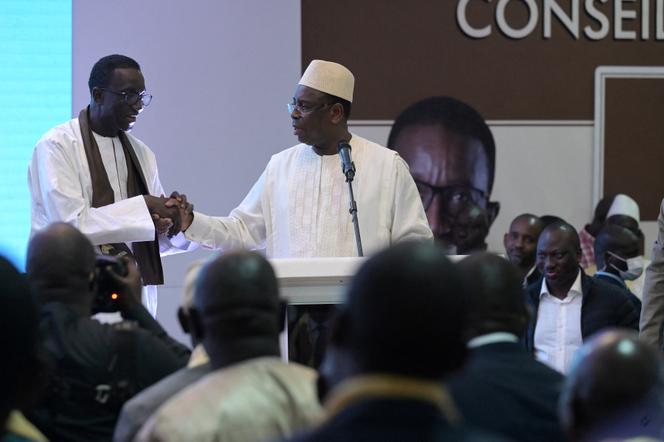


On Thursday, February 15, Senegal's Constitutional Council overturned the postponement of the presidential election originally scheduled for February 25 to December 15. The Council ruled that it was "contrary to the Constitution" for President Macky Sall to remain in office beyond the end of his term. Moussa Diaw, a political science research professor at the Université Gaston-Berger in Saint-Louis, looks back at what he sees as a "historic decision."
It's a political setback for him and a disavowal. His decision to cancel the presidential election, unprecedented in Senegal's history and taken without consulting the candidates, was a mistake on his part and that of his political allies in the Benno Bokk Yakaar coalition. It is now up to him to find a solution, and he has very little room for maneuver. The president has no choice but to comply with the decision of the Constitutional Council, which "invites the competent authorities to hold [the election] as soon as possible." Macky Sall's term of office ends on April 2. After this date, he is no longer president of the Republic. If he does not organize the election before then, it could create a politically tense situation.
The Constitutional Council did not want to commit to a specific date, and in my opinion, it was right. It is now up to the executive to put forward a date that can achieve consensus. The initial date of February 25 is not feasible. To get out of the crisis, I think the president should consider postponing the election until March, for a smoother handover. We must swiftly move towards the election to calm tensions. Senegal must reconnect with its democratic tradition and uphold the rule of law.
Obviously, these accusations have affected the Council's image, but its decision can be considered historic. The councilors have assumed their responsibilities by scrutinizing the compliance of laws and enactments passed. This censorship allows them to restore the institution's image and establish a space where it regains a major role as a political referee. Accusations against the Council could have influenced its choice, but it now appears to be a competent safeguard in upholding the law, in line with its prerogatives.
The PDS strategy clearly backfired. Karim Wade was disqualified by the Constitutional Council due to false statements about his dual French and Senegalese nationality. Subsequently, his party initiated a parliamentary inquiry questioning the integrity of two council members. Listening to PDS members, it becomes apparent that this commission was merely a means to postpone the election. Today, Karim Wade runs the risk of being penalized by Senegalese voters who saw through his political maneuvering. The PDS finds itself in a political deadlock.
Senegal's environment is polluted by military and constitutional coups. However, today, the Senegalese Council sets an example for its counterparts in the sub-region who have failed to play their role. The Senegalese example should serve as a model to strengthen the rule of law and democracy throughout French-speaking Africa.
Translation of an original article published in French on lemonde.fr; the publisher may only be liable for the French version.
